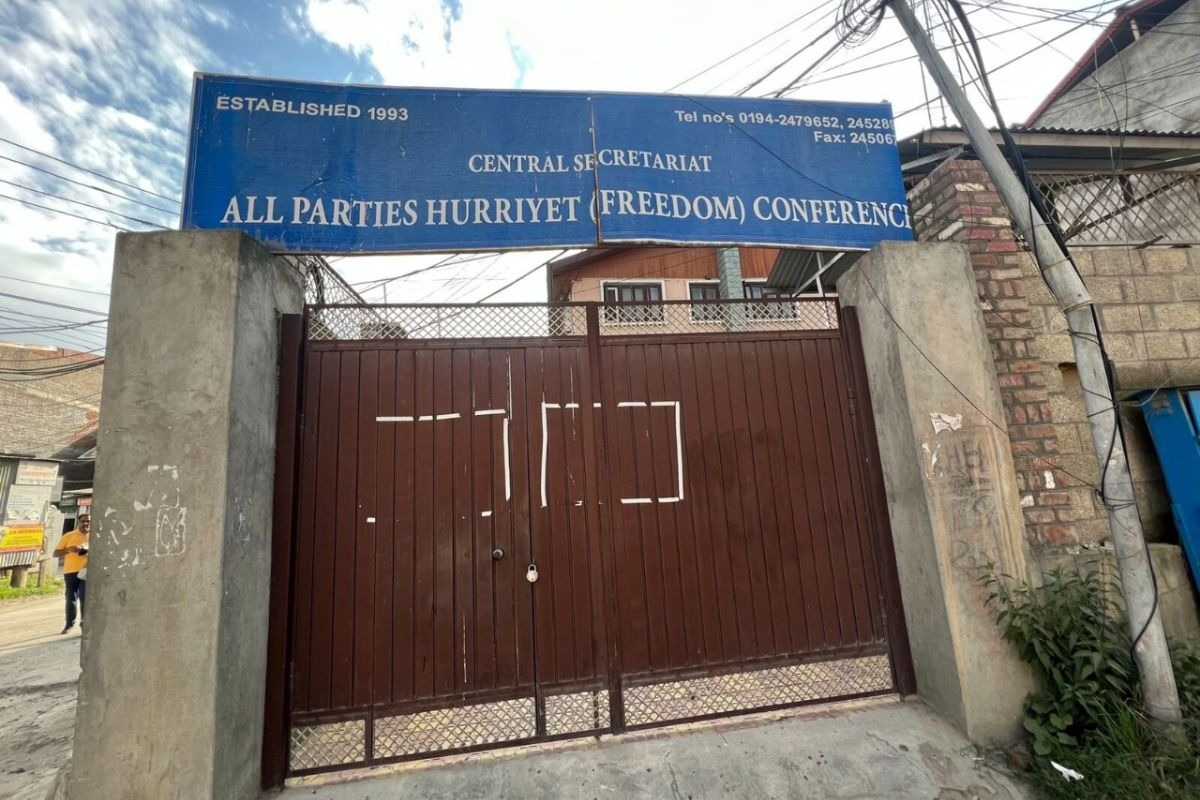A Delhi court has ordered the attachment of the All Parties Hurriyat Conference office in Srinagar’s Rajbagh area in a UAPA case probed by the National Investigation Agency (NIA) against its leader Nayeem Ahmad Khan.
Additional Sessions judge of Delhi’s Patiala court issued the order on the NIA’s plea under section 33 (1) of the Unlawful Activities (Prevention) Act to attach the Kashmiri separatist group’s office.
The NIA had filed a FIR on the complaint of the ministry of home Affairs alleging Lashkar-e-Taiba chief Hafiz Mohammad Sayeed and various separatist leaders including members of the Hurriyat Conference were raising funds through hawala and had entered into a conspiracy to cause violence in the Valley.
The agency had also stated that the office situated at Rajbagh was used to strategize different protests, funding activities of stone pelting on security forces, recruiting of unemployed youths to carry out “unlawful activities as well as terror activities” to create an unrest in Jammu and Kashmir and to wage war against the government of India. It also told the court that the Hurriyat office is partly owned by Khan along with its other associates.
“In view of the above reasons, the immovable property i.e. building office of the All Party Hurriyat Conference situated at Raj Bagh, which was earlier used as an office of APHC is ordered to be attached. Necessary legal process be carried out in this regard,” the court said.
Khan’s counsel had earlier submitted that the office was only partly owned by him whereas other co-owners were not given any notice before attachment. Noting that the office was being used as an office of APHC, the court said that there are many other accused persons besides Khan who were affiliated to the office, and are being prosecuted in the matter.
The evidence collected during investigation was duly examined at the stage of framing of charge by the predecessor court which concluded to frame charges against Khan and other accused persons was also noted by the court.
“In that process, it is needless to observe that in case any other person who claims to be co-owner and consider that such process of attachment is not proper can avail legal right in accordance with law,” the court said.
It further stated that the attachment of property, in itself, does not amount to any bearing upon trial and that cannot in any manner be considered as “pre-trial conclusion” or findings of punishment or offence against the accused.
“It simply means that the property of the accused which may like to be fortified to the state in case of him being convicted of offence of terrorist acts,” stated the court, adding that that section 33 of the UAPA does not hinder the powers of the court to attach any such property which may be partly owned by the accused.
Khan was arrested on July 24, 2017, from Kashmir for “creating unrest” in the Valley and remains in judicial custody since August 14, 2017. His application for bail was denied last December.









